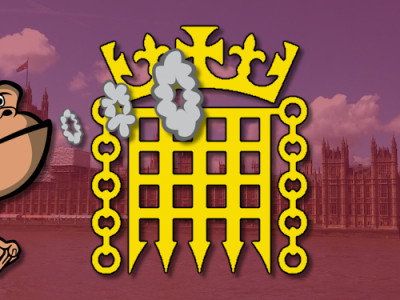“Recent commentary around this 2019 survey does its best to convey the impression that vaping is rife in New Zealand secondary schools. However, Otago University researchers conveniently fail to acknowledge that vaping legislation and regulations have already seriously crunched youth access and youth appeal,” says AVCA co-director Nancy Loucas.
The survey (1) claims: “More than a third of New Zealand high school students have tried vaping, with 10 percent vaping regularly and six percent vaping weekly or more often.”
Researcher Dr. Jude Ball believes the study highlights the importance of getting the balance right between making it easy for adult smokers to switch while protecting young non-smokers: "Our findings suggest that during 2018 and 2019, that balance was not achieved."
AVCA say claims by the Otago University researchers about vape flavours and marketing still attracting youth are not matched by the new regulatory reality. Not only is vaping now strictly sanctioned R18, but all advertising is banned as are most vape flavours in general retail outlets such as dairies, supermarkets, and service stations.
“Rest assured, any surveys that show high school students are trying vaping or regularly vaping in numbers are concerning. However, referring to an outdated pre-regulation survey when vaping marketing and advertising were widespread, there was no purchase age or enforcement, and flavours were much more easily sourced is not a fair representation of what is going in New Zealand now,” Nancy Loucas says.
The past 12 months has seen also seen tougher regulations around packaging, promotions, and displays. Specialist registered vape stores can still sell a wider range of flavours, but they also have tighter security and prevention mechanisms to deter those under 18.
“The retail environment around vaping has tightened up considerably since 2019. However, more can always be done to protect our youth. For example, the Government needs to get tougher at the point of sale, applying the harshest penalties available for those caught selling or supplying to minors,” she says.
Ms Loucas says despite some best attempts to create a youth vaping crisis, the anecdotes are not reflected in the most significant empirical evidence collected in New Zealand to date.
University of Auckland researchers last year examined a survey of over 27,000 secondary school students. Researchers found only 0.8% of 14 and 15-year-olds, who had never smoked, were regular vapers. Subsequently, they confirmed there was no youth vaping epidemic in New Zealand.
ACVA argues that while the Government’s has come down hard on youth vaping, it’s approach nonetheless has been too blunt.
“Sadly, making vaping much less appealing and accessible for young New Zealanders also means fewer Kiwi adults will successfully quit smoking through vaping. Let’s not forget adults love vape flavours which are key to adults quitting cigarettes. In that regard, it’s a worry that since 11 August the most popular vape flavours have been harder for Kiwi adults to find than cigarettes,” she says.
Ms Loucas says the Government’s smokefree action plan, yet to be released, must promote vaping as a key factor in New Zealand achieving Smokefree Aotearoa.
“Every time somewhat obsessed Otago University researchers rubbish vaping, despite it being 95% less harmful than cigarettes and the most effective smoking cessation tool, New Zealand gets further away from achieving smokefree - not closer!
“Dragging out a 2019 youth survey on vaping, when so many new rules and restrictions aimed at the youth have since come into effect, is disingenuous at best and damaging for Smokefree Aotearoa at worst,” says Nancy Loucas.
References:
- Jude Ball et al, New Zealand Youth19 survey: vaping has wider appeal than smoking in secondary school students, and most use nicotine-containing e-cigarettes Australian and New Zealand Journal of Public Health, onlinelibrary.wiley.com/doi/fu … 1111/1753-6405.13169
Photo Credit:
Photo by Samuel Ferrara on Unsplash
Dave Cross
Journalist at POTVDave is a freelance writer; with articles on music, motorbikes, football, pop-science, vaping and tobacco harm reduction in Sounds, Melody Maker, UBG, AWoL, Bike, When Saturday Comes, Vape News Magazine, and syndicated across the Johnston Press group. He was published in an anthology of “Greatest Football Writing”, but still believes this was a mistake. Dave contributes sketches to comedy shows and used to co-host a radio sketch show. He’s worked with numerous vape companies to develop content for their websites.
Join the discussion
Parliament Fears Two
The Department for Environment, Food and Rural Affairs faced questions from a Conservative MP and, oddly, a member of the Department for Environment, Food and Rural Affairs
Harm Reduction For The Rich
The United Kingdom risks becoming a harm reduction country only for the wealthy, according to Michael Landl of the World Vapers’ Alliance
Scotland Announces Single-Use Vape Action
A ban on the sale and supply of single-use vapes in Scotland is due to come into effect on 1 April 2025, under proposed legislation published today
Parliament
Andrea Leadsom has been quizzed by Rupa Huq and Derek Thomas about the promotion of vaping and support to those who want to quit












